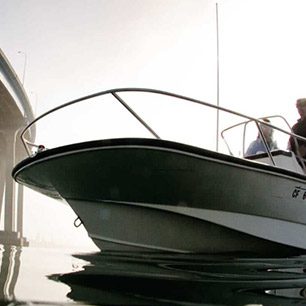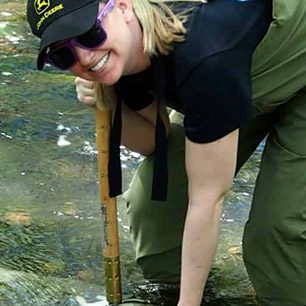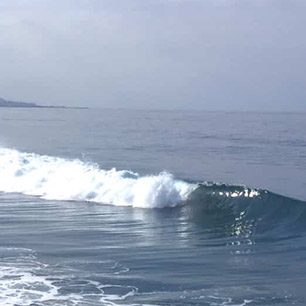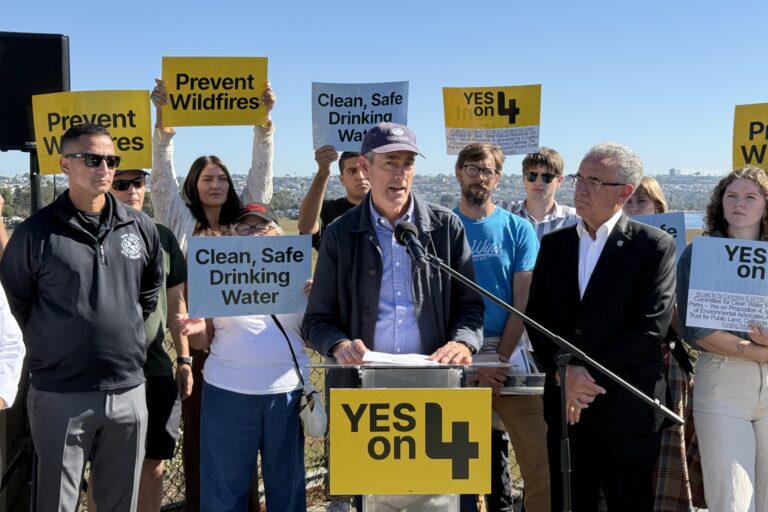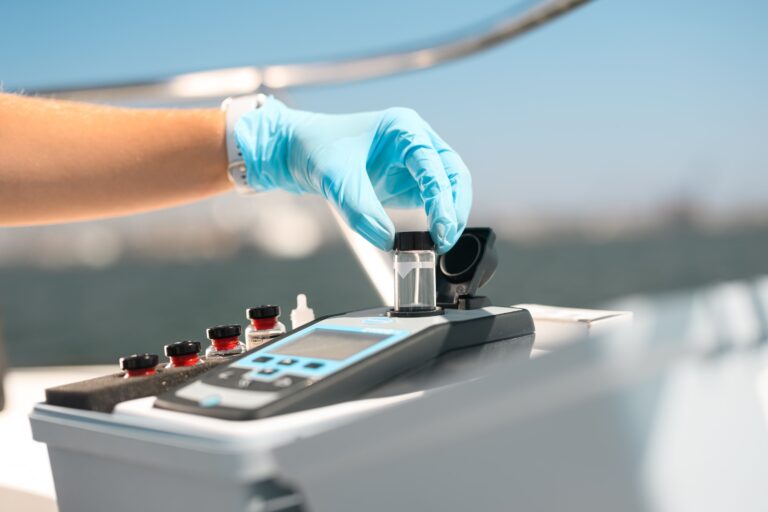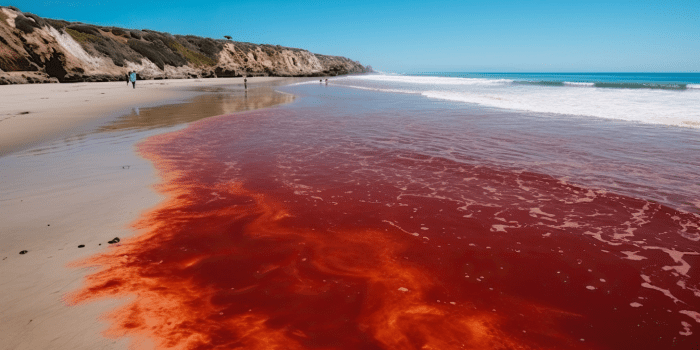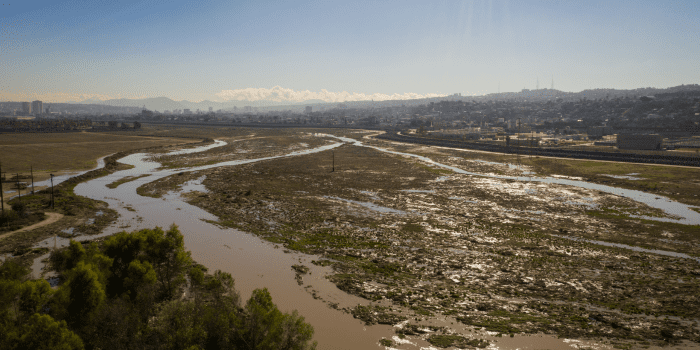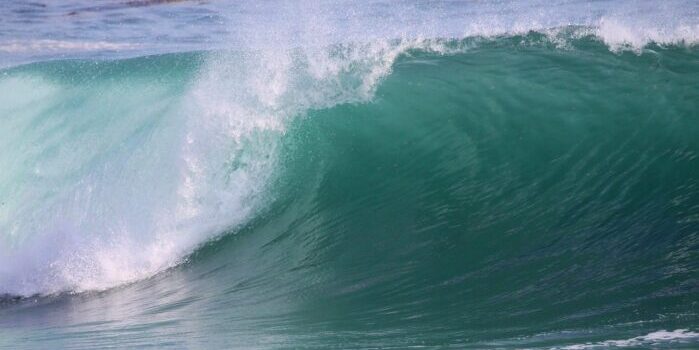South Bay International Wastewater Treatment Plant, in San Diego at the border with Mexico, routinely discharges extremely high levels of sewage and toxic chemicals into the Tijuana River and Pacific Ocean in violation of its Clean Water Act permit, leading to years of public health impacts, beach closures, and degradation of the Tijuana River Estuary.
SAN DIEGO –– San Diego Coastkeeper (Coastkeeper) and Coastal Environmental Rights Foundation (CERF) filed suit in federal court Thursday against the International Boundary and Water Commission (IBWC) and Veolia Water North America-West (Veolia) for violations of the South Bay facility’s Clean Water Act discharge permit. The lawsuit documents hundreds of violations of permit limits for discharges of sewage bacteria and hazardous chemicals over the past five years that have overwhelmed the Tijuana River and coastal ocean waters in San Diego with raw sewage and toxic chemicals. IBWC’s complete failure to operate the South Bay facility properly is a major cause of the ongoing public health and environmental catastrophe in the Tijuana River Valley that has led to years of beach closures, severe economic impacts, and growing evidence of grave public health risks to residents of Imperial Beach, San Ysidro, and other South County communities.
Coastkeeper and CERF’s suit seeks a court order requiring IBWC and Veolia to take immediate action to stop these illegal discharges. They also seek the imposition of civil penalties against Veolia for its negligent operation of the South Bay facility. Veolia is a private company contracted by IBWC to operate the South Bay Treatment Plant. Coastkeeper and CERF’s Complaint was filed in the United States District Court for the Southern District of California. IBWC is a federal agency within the U.S. Department of State charged with operating infrastructure along the U.S./Mexico border. Since its construction in 1990, the IBWC’s South Bay treatment plant has suffered from operational and maintenance failures, resulting in chronic, severe pollution of coastal waters and the Tijuana River estuary. The City of Imperial Beach has borne the brunt of this impact, with its public beach closed for over two consecutive years due to polluted discharges from the facility and related discharges of raw sewage from Tijuana.
The Clean Water Act violations documented in the lawsuit include:
• Over 500 violations of permit limits for discharges into the Pacific Ocean, including 130 violations involving extremely hazardous chemicals such as DDT and PCBs at levels thousands of times the limit. PCBs and DDT were banned in the U.S. decades ago.
• Numerous violations from spills and discharges of bacterial pathogens, trash, and heavy metals, including lead, from canyon collectors funneling waste directly into the Tijuana River Estuary.
• Violations of receiving water limits for bacteria in the Pacific Ocean at hundreds of times the allowable limit in areas designated for water recreation and shellfish harvesting.
• Failure to submit self-monitoring reports, depriving the public of meaningful access to information about the treatment plant’s discharges.
“We are bringing this lawsuit on behalf of the people in our South Bay communities that continue to suffer the effects of IBWC’s incompetence, and the coastal and marine wildlife and natural resources severely degraded by this relentless flow of pollution,” said Phillip Musegaas, Executive Director of Coastkeeper. “We will use the power of the law to hold IBWC accountable and compel action to solve the Tijuana sewage crisis once and for all.”
“We need a holistic, fully funded solution to this public health and environmental catastrophe,” said Marco Gonzalez, Executive Director and lead counsel for CERF. “The historical patchwork of funding and planning clearly hasn’t worked. The government needs to act with the sense of urgency demanded by this situation.”
###
Background
Settlement of a previous lawsuit against IBWC in 2022 for its previous pollution of the Tijuana Estuary and Pacific Ocean resulted in $300 million in funding from EPA to modernize and expand the South Bay Treatment Plant. However, IBWC was forced to acknowledge in 2023 that the plant needed at least $150 million in repairs just to bring it back to a basic operating condition, and the expansion of the plant to accommodate future needs would cost nearly $1 billion dollars. In March 2024, IBWC received an additional $103 million in federal funding to fix its decrepit facilities. Despite these infusions of funding, the South Bay Treatment Plant’s permit violations continue unabated, and huge volumes of sewage and hazardous chemicals continue to contaminate the Tijuana River Valley and local communities.
About San Diego Coastkeeper
Founded in 1995, San Diego Coastkeeper protects and restores San Diego County’s bays, beaches, watersheds, and ocean for the people and wildlife that depend on them. Coastkeeper balances community outreach, education, science, advocacy, and legal enforcement to promote clean water stewardship and a healthy coastal ecosystem. For more information, visit www.sdcoastkeeper.org
About Coastal Environmental Rights Foundation
CERF is an environmental nonprofit founded in 2008 by surfers in Encinitas, CA. CERF is dedicated to the preservation, protection, and defense of the environment, the wildlife, and the natural resources of the California Coast. To learn more, visit www.cerf.org
CERF is represented by Coast Law Group, LLP. www.coastlaw.com
Link to Press Release PDF.
Link to Complaint PDF.
Links to:


